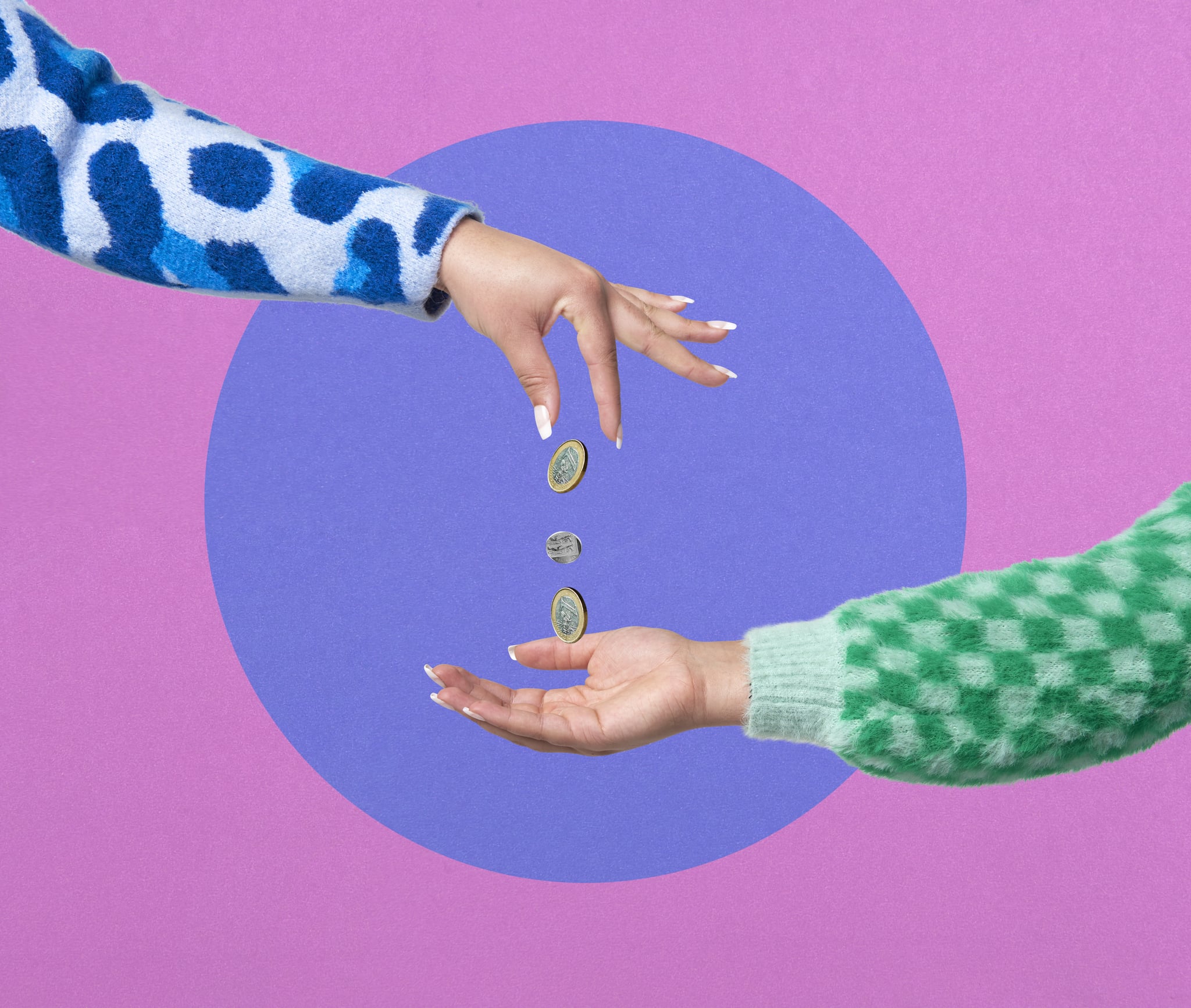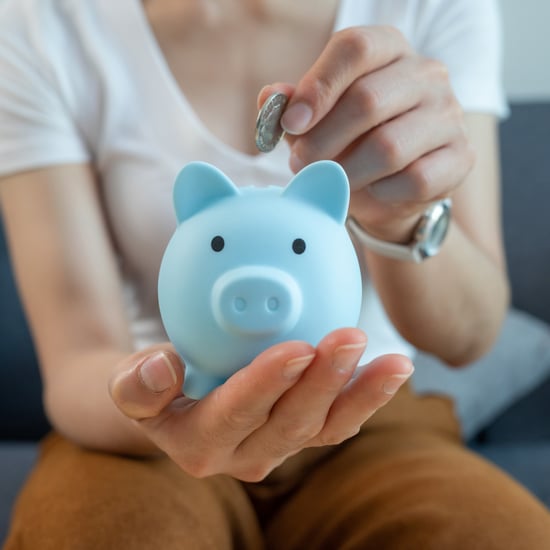Pennies To Pounds' Kia Commodore Money-Saving Tips
Can I Have Fun In My 20s or Should I Be Saving Now? We Ask An Expert

Image Source: Getty
I don't know about you, but I'm unsure how I should be navigating finances in my 20s. It feels like for previous generations, your 20s were the time to have fun, move up the career ladder and enjoy life before things perhaps got more serious. But let's face it, we're living in extremely complex times — from the cost-of-living crisis to inflated house prices, it's harder than ever to get on the housing ladder. After we emerged from the pandemic, I suddenly went from being in my early 20s to mid-20s, which was a shock to the system and I wasn't prepared for the constant feeling of financial pressure and uncertainty that would come with it.
Social media has a huge part to play in my feelings of uncertainty. We're fed a lot of content - there is so much accessibility to other people's lives and it can be easy to make assumptions based off a few luxurious Instagram pictures. Comparison culture is rife and it can be so easy to be led astray or to try to live a life outside of your own means. On the other hand, there's the constant rise of viral money-saving hacks like TikTok's No Spend Challenge and Loud Budgeting and new crop of financial investors telling young people to be savvy with their finances. It can be overwhelming. Which challenge should I follow? Which one is best for me? And ultimately, are they even worth it? Am I supposed to be spending and living the good (insta) life, or saving and being savvy?
Whilst I'm constantly trying to ensure I have financial security, I also want to enjoy my 20s to the fullest, like it feels other people not much older than me managed to do. I have hopes of seeing the world and I want to feel like I can enjoy the money I earn and use it for life experiences. However, when I do give into these desires, I also have this niggling feeling in the back of my head about whether it's the right financial decision for my future. At this stage of my life, this is probably the moment where I have the most freedom; I'm currently childless and living at home - but I'm always conflicted.
Comparison culture is rife and it can be so easy to be led astray, attempt to imitate, or try to live a life outside of your own means.
As a young adult in 2024, the messaging surrounding our financial future can feel bleak and very uncertain. So, should I be saving money or having fun in my 20s? In order to get some clarity, we spoke to the Founder of financial education platform Pennies To Pounds,Kia Commodore. With a passion for making money matters accessible and jargon-free, Kia set out to create a platform that would empower young individuals to take control of their finances and build a secure future.
What I learned from Kia is that the key to simultaneously enjoying your 20s and saving is implementing small lifestyle habits to help with the overall bigger picture. What's clear through Kia's expert advice is that it is possible to save and have some fun at this stage of life, as long as you take action with your habits and enjoy life with some compromises in mind.
Is It Possible to Save and Have Fun in Your 20s?
Kia: In the current climate I can understand why it feels hard to save whilst also enjoying your hard-earned salary. However, following these tips can help you become more savvy with your finances so you can still enjoy your 20s without feeling the money anxiety and guilt.
 Image Source:Pennies To Pounds
Image Source:Pennies To Pounds
Avoid impulse purchases: To cut down on those spur-of-the-moment buys, I think it's always a good idea to pause and ask yourself: "Do I actually need this?" Or, even try waiting a day to see if you still feel the same about making the purchase.
Embrace "loud budgeting": It's all about being honest about what you do and don't want to spend your money on. So, if you don't want to fork out on a new outfit for a friend's wedding, then it's ok to reuse something you already own or even use clothing rental apps. So many great ones are available now, with amazing brand offerings at a fraction of the cost. Also, instead of following fast fashion trends, you could invest in some classic wardrobe items that have a long shelf-life and will essentially never go out of fashion.
Don't fall for lifestyle inflation: If you get a promotion or a pay rise that doesn't mean you should increase your spending habits. What you could do is set up an automatic transfer of the additional disposal income you've gained to start building savings. Or, you could use a budgeting tool to help you stay on top of your spending and allow you to budget so you can still enjoy a treat or two!
Are TikTok Financial Trends Actually a Helpful Way For Young Adults to Save?
Kia:I think they are helpful. It's about being transparent, being in control and feeling unashamed by your financial situation. Why stretch yourself because your friend can afford to go eat out every night but you can't? If they're good enough friends, they'll understand and you can suggest cheaper alternatives which are just as fun, like cooking a delicious meal at home whilst watching a movie.
Do You Advise Buying or Renting a Home in Your 20s?
Kia:I think everyone's position is unique. If you are happy living at home still and are able to save in doing so, I would recommend that this is a good route for increasing your savings pot, to help build your deposit. Renting is essentially paying off someone else's mortgage, but it also gives you financial responsibility, freedom and if you're in a house-share you'll also have the chance to meet new people. Also while interest rates are higher, property prices are lower so there are pros and cons.
What Money-Saving Tips Can You Share for Those Who Hope to Buy a Property in Their 20s?
Kia:I think there is a lot of pressure in our society to become homeowners and this is partly due to social media. If you're in your 20s and not achieving your idea of a 'life goal' such as owning a home, then it can feel very frustrating and demotivating. A lot of young people are in the same boat, so try not to put too much pressure on yourself. There are lots of different factors to consider and everyone's situation is different.
If you are, however, really serious about owning in your 20s, I would arrange a meeting with a mortgage broker to understand how much you could potentially borrow from the bank with the deposit you're able to save. Be aware of all the additional costs that come with house buying like solicitor's costs, removal vans, surveys. You could also make use of a lifetime ISA where the government will add a 25% bonus to your savings if you add in £4k each year.
A Lot of Young Adults Use Pay Later Apps Like Klarna - What Hacks Would You Recommend When Using Them?
Kia: I really like the search and compare tool in the Klarna app. It's great because it removes the hassle of scrolling through pages and pages by comparing thousands of products to find a great price on an item you really want. Also people may know Klarna for "Pay in three", but you can also use Klarna to pay now. This is particularly useful because if you "Pay Now" you can track all your purchases in the app, which is great if you're practising loud budgeting. You can then use Klarna's other payment options like "Pay in three" to spread the cost of your larger long-term purchases over three months, interest-free.
"If you're in your 20s and not achieving your idea of a 'life goal' such as owning a home, then it can feel very frustrating and demotivating. A lot of young people are in the same boat so try not to put too much pressure on yourself."
What Tips Do You Have For Emotional Spenders or Those Who Struggle to Save?
Kia: Be open and honest about your financial situation and what you're happy to spend versus what you're not. If your friend wants to go out for dinner and chooses a restaurant out of your price range that month, be honest and suggest somewhere that is better for your financial position.
I also like to talk about "habit stacking" which essentially means taking an existing habit and stacking a new habit on top of it. For example, you might decide after your morning shower or making your morning coffee that you will transfer a daily amount into your savings. It takes 21 days to develop a habit and 90 days for it to become part of your lifestyle.
I got my first job at 16 in McDonalds and I wasn't earning a lot — I think it was £4 an hour, but I knew it was important to start saving. I set up a standing order (which is basically a set of instructions you give to a bank to move money from one account to the other) and moved £5 from my current account to my savings account every Friday. I have no online banking linked to that account so I've never had any access to it. To this day that £5 is still transferring out of my current account each week - it's been this way for seven years now! So, this is money that I just know is going out into my savings every month and I don't even realise it.
Aaliyah Harry (she/her) is the associate editor at POPSUGAR UK. She writes extensively across lifestyle, culture and beauty. Aaliyah also has a deep passion for telling stories and giving voice to the voiceless. Previously, she has contributed to Refinery29, Grazia UK and The Voice Newspaper.









